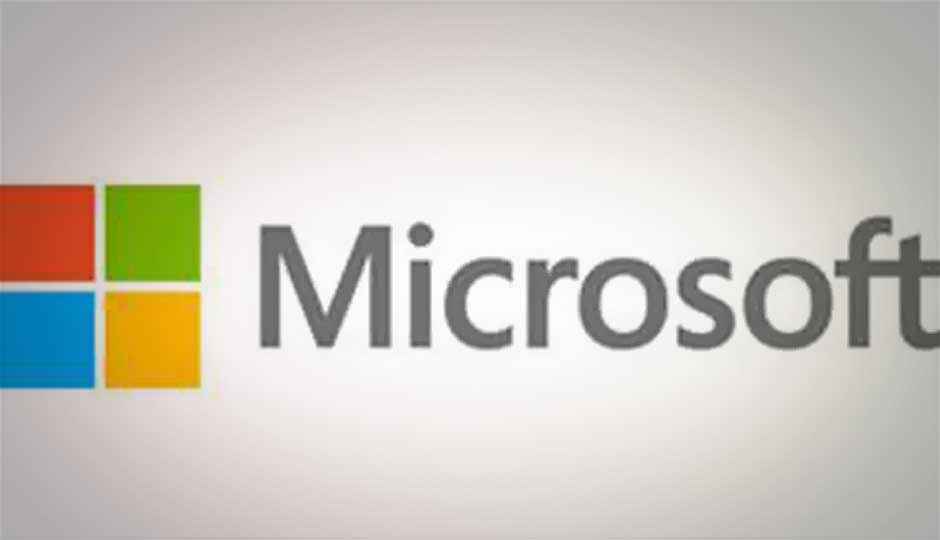Hold the phone: Microsoft wants to buy Nokia and Nvidia?
By
Damon Poeter |
Updated on 10-Nov-2012

Here’s an interesting bit of speculation from Information Week’s Paul McDougall—Microsoft could be in the market to acquire not just key Windows Phone partner Nokia but also chipmaker Nvidia.
There are a lot of problems with this double-barreled dealmaking approach for Redmond, which we’ll talk about in a bit. First, let’s look at McDougall’s logic.
For all intents and purposes, it sure looks likeMicrosoft wants to “adopt the Apple model” of extreme vertical integration for its product development cycles, meaning it seeks a whole lot more control and input on what it’s producing from the silicon level on up.
Evidence? For starters, Microsoft has willingly accepted the risk of fallout from ticked-off OEM partners by releasing its new Surface tablets. The software giant may also be planning its own in-house Windows Phone 8 device and a 7-inch Surface slate that may be a smaller version of the current Surface or an Xbox-integrated gaming tab.
“So Microsoft may be getting into the hardware game for keeps,” McDougall writes, and the first-order motivator is that Redmond “is sick of watching Apple’s beautiful new products draw raves and set fanboy hearts afire while its partners come out with Windows-based devices that, well, let’s just say can be less than impressive.”
The “volume over quality and quantity over margin” model that’s fueled the Windows empire for so long is simply looking a lot less strategically sound these days, the Information Week editor-at-large concludes.
Throw in questions about the long-term viability of being a software-only vendor in a world where the likes of Google run on a model that gives an operating system away for free, and you can see where Microsoft may be seriously considering a bold new approach to doing business.
Why Nokia? Basically because it would be really cheap to acquire right now, according to McDougall, who figures the Finnish handset maker “could be bought—lock, stock, and worldwide production network—for about $14 billion,” or “a relative song.”
Why Nvidia? Because Microsoft needs a chip design asset to compete with Apple, which designs the ARM-based A-Series processors for its iPhones and iPads. Redmond has a long relationship with Nvidia, and has first right of refusal on a deal to buy the chipmaker, as McDougall himself reported last June.
Nvidia could be had for $14 or $15 billion, he figures, and Microsoft’s sitting on more than $66 billion so it could pull off both deals.
So that’s McDougall’s argument. What’s wrong with it?
For starters, let’s forget about the Apple model for a second and look at the Hewlett-Packard model. HP’s current struggles show us that buying up a bunch of stuff willy-nilly can lead to big problems down the line. Heck, let’s just recall Microsoft’s own recent history with a big acquisition that wound up causing trouble, namely the 2007 deal for aQuantive that led to a $6.19 billion write down in the company’s fiscal fourth quarter and its first quarterly loss ever.
There’s also the macroeconomic picture to consider. There’s still a lot of uncertainty in global markets as our recovery from the 2008 economic crisis and ensuing Great Recession remains historically sluggish and uninspiring. Is this the climate for a company like Microsoft to halve its cash reserves chasing a business model that only one uniquely constructed tech company has successfully pulled off? There’s no doubt that Apple’s recent success has been awesome to watch, but it also represents a sample size of, you know, one.
But don’t just rely on my quibbles with McDougall’s thinking. Here’s what a couple of industry analysts have to say about it.
Patrick Moorhead of Moor Insights & Strategy was dubious about the risk-reward trade-off of a Nokia acquisition and didn’t even bother to address the more radical notion of a Microsoft deal for Nvidia.
“Microsoft’s communicated direction is ‘devices and services.’ Buying Nokia would certainly support this direction, but it would be very risky for Microsoft,” he said.
Jack Gold of J. Gold Associates also focused on the Nokia element and was flat-out against such an acquisition. To begin with, he questioned whether aping Apple was even a good idea in theory, positing that the iPhone maker’s model “is seriously in doubt longer term.”
“Microsoft should not buy Nokia—it would probably be bad for both, and for [Windows Phone] in general,” Gold said. “Next, Microsoft doesn’t really care if it makes any money on the OS. The money is in the services it will offer, and that will not go to zero, despite what Google does. Everyone said Google would drive Office revenues to zero—seems like it was doing pretty darn well last I looked.”
“Lastly, any vendor who competes with its customers, as Microsoft would do if it actively got into the hardware environment, would drive its OEMs to either go out of business, deemphasize Windows, which would have a negative effect on Microsoft, or simply make end users totally confused, which is never good for the market,” he continued.
“And by the way, margins on most commodity hardware these days is terrible—why take that on?” the analyst added.
 Survey
Survey✅ Thank you for completing the survey!
Copyright © 2010 Ziff Davis Publishing Holdings Inc
